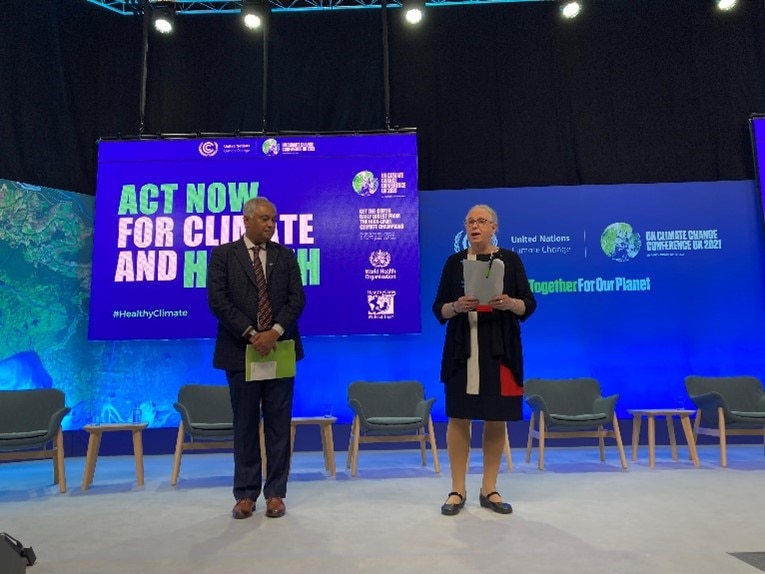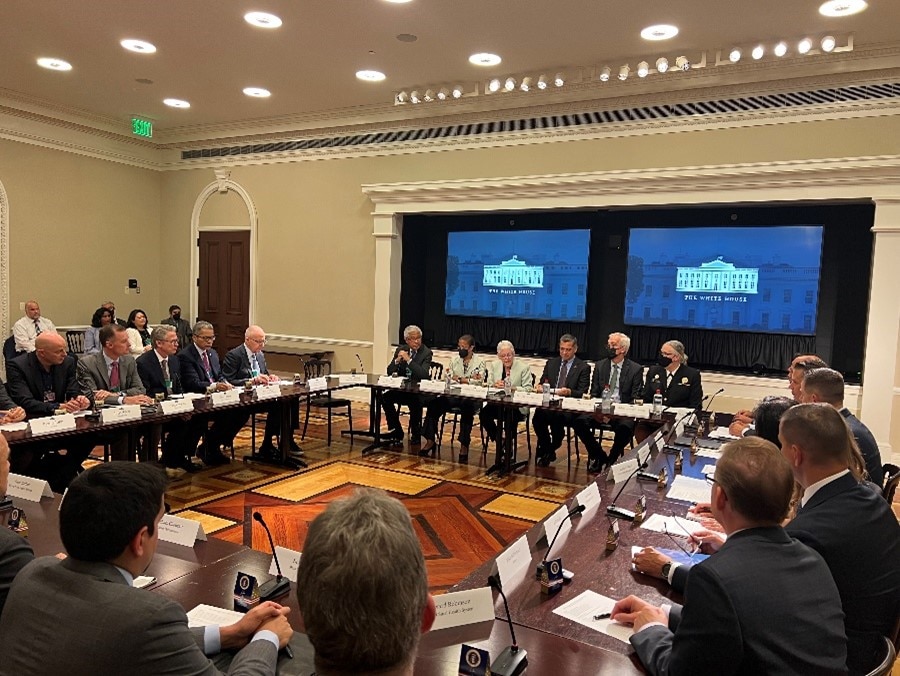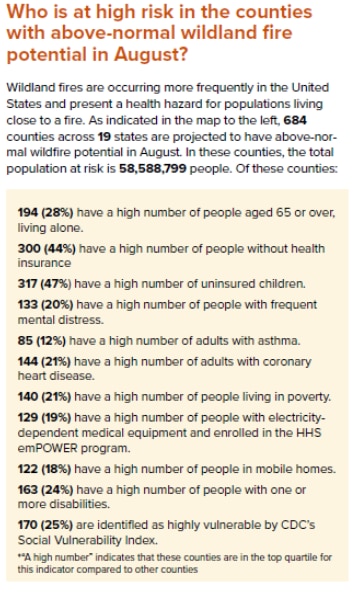It’s been one year since the Department of Health and Human Services (HHS) launched the Office of Climate Change and Health Equity (OCCHE) to protect people in America from the health hazards associated with climate change. In that time, OCCHE has partnered with other countries on shared goals, launched a voluntary pledge and associated webinar series on supports for U.S. health sector resilience and decarbonization, and developed the Climate and Health Outlook linking seasonal forecasting to health effects. These accomplishments reflect OCCHE’s commitment to collaboration and leveraging the best data, programs, and expertise to fight the biggest global health threat of the 21st century.
Just two months after being established, OCCHE was at the United Nations Framework Convention on Climate Change Conference (COP26) presenting on how climate action can reduce health disparities and joining the COP26 Health Programme. As one part of meeting the COP26 commitments, OCCHE coordinates across the federal government – including the Veterans Health Administration, Indian Health Service, and Military Health System – to prepare federal health systems for the effects of climate change and achieve net zero emissions by 2050.

Assistant Secretary for Health Admiral Rachel Levine presenting at the 2021 United Nations Climate Change Conference.
But the government cannot go it alone; the U.S. needs the entire health sector to embrace common aims around adaptation and mitigation that prioritize vulnerable populations. On Earth Day, the White House and OCCHE launched the Health Sector Climate Pledge: a voluntary commitment for health care organizations to invest in resilience and decarbonization. Two months after the launch, 61 organizations representing over 650 hospitals had signed on, and leadership from across the administration met signees at a White House event to celebrate and plan for their shared work.
Just as important as the pledge itself are the associated federal supports and technical assistance OCCHE is disseminating (also available to those who haven’t signed on yet), including a webinar series on available sources of federal grants and other assistance. These investments protect public health by enabling facilities to stay open during emergency events and lowering pollution levels that can harm communities in both the short and long-term.

June 30 White House event featuring (from left to right): National Academy of Medicine President Victor Dzau, Ambassador and White House Domestic Policy Advisor Susan Rice, White House National Climate Advisor Gina McCarthy, HHS Secretary Xavier Becerra, Veterans Affairs Secretary Denis McDonough, Assistant Secretary for Health Admiral Rachel Levine, and leaders from across the health sector.
Climate change-related hazards are already affecting our health. To support public health planning and awareness, OCCHE launched the Climate and Health Outlook in May to connect forecasted climate change-related hazards in the next 30 – 90 days to how those threats could affect vulnerable populations. The Outlook also includes resources from an array of agencies to help guide responses. The recognition that climate change often impacts disadvantaged groups the most is a key element of the Outlook, which calls attention to how the counties projected to experience hazards have disproportionate numbers of certain at-risk populations.

A snapshot from the August Outlook identifying certain risk indicators in counties projected to have above-normal wildfire potential in August.
The Outlook is one way OCCHE has raised awareness about resources to combat extreme heat during dangerous heat waves this summer. OCCHE also co-leads the Interagency Working Group on Extreme Heat, has coordinated HHS participation in interagency heat-awareness campaigns, and contributes to Heat.gov, the premier source of information regarding heat and health for the nation.
Because climate and health solutions often have to be customized and made sustainable at the neighborhood level, OCCHE is working through partnerships to develop “resilience hubs” on the ground to support communities addressing health disparities year-round and also serve as resources in times of weather extremes and disasters. As a small federal office, OCCHE has focused on engaging regional HHS offices to learn from their experience and build on their relationships with communities, faith-based organizations, and academic institutions.
A community’s health and resilience to climate threats isn’t just a function of location and resources, but also of history, including zoning laws and pollution that can put disadvantaged groups at greater risk. Recognizing the importance of protecting the health of vulnerable populations on the frontlines of environmental hazards, OCCHE launched the Office of Environmental Justice in June. The new office has already helped develop the Environmental Justice Index, a tool to identify and map communities most at risk for the health impacts of environmental burdens.
Looking toward the future, the Office of Environmental Justice will continue coordinating HHS involvement on Justice40, an initiative to ensure 40 percent of the overall benefits of certain Federal investments flow to disadvantaged communities. OCCHE will continue leading community climate resilience and healthcare decarbonization work, publishing the Climate and Health Outlook, and working with international partners on shared priorities. OCCHE is also taking on new challenges like creating a plan to address health system vulnerabilities and build adaptative capacity to climate change. By 2025, OCCHE hopes to see a health sector not only better prepared for the effects of climate change but also that has also drastically reduced its emissions.
In all of its work, OCCHE will continue the collaborations with local, federal, and international groups that have made many of the milestones from OCCHE’s first year possible. Protecting the American people from the evolving threats of climate change is a journey we must take together.



